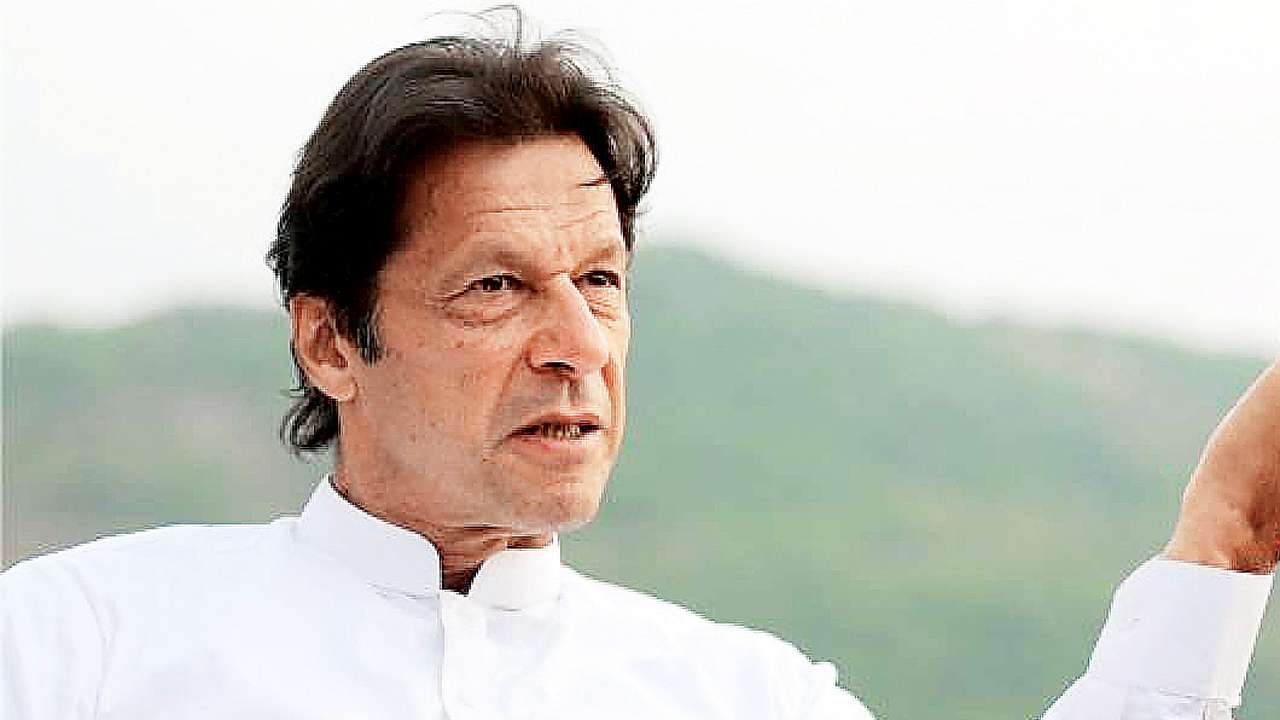
Pakistan’s prime minister-in-waiting Imran Khan is well regarded the world over, and many feel honoured for having met the man. For this writer, it was a very different story. My meeting with Khan, which lasted for a fleeting two minutes, has left a permanent mark on me. Not for the usual reasons, but because it got me into trouble with the authorities.
The fateful meeting took place when I was visiting Rawalpindi, Pakistan, to attend a cousin’s marriage in February 2001. While returning home via Lahore, I used some of the time left in that city to visit the now deceased Pakistani journalist Majeed Nizami in his office. As I was leaving his room, while chatting with his assistant Muneer, I saw Imran Khan climbing the stairs along with his supporters. Muneer received him and then introduced me to Khan, who shook hands, exuding warmth without really registering my presence. There was nothing to remember about this event other than the fact that I shook hands with a former top cricketer, an iconic sex symbol, especially for western women, and a budding politician, who would one day become the prime minister.
Khan re-entered my life inadvertently 15 months later in June 2002, when I was held and questioned in Delhi after being wrongly charged with violating the Official Secrets Act. For nine days, various agencies interrogated me at the Special Cell office of the Delhi Police. Naturally, I was asked about details of my Pakistan visit and I faithfully narrated all the meetings I had there. On the eighth day of questioning, an interrogator insisted that I had forgotten one meeting and told me to make sure that I remember it the next day. I tried hard, but could not recall any meeting that I had not shared with the interrogators. The next day, on seeing my bewilderment, the interrogator recalled my meeting with Imran Khan and both of us had a hearty laugh. Clearly, there was nothing that our intelligence agencies did not know about me.
On a more serious note, it was not just the intelligence agencies that were probing me, the media was also doing the same, and not with facts, but untruths. While I was detained in Delhi’s Tihar Jail, a media war was breaking out about me and my Pakistan visit. One day, a newspaper ran a front-page story about my meeting with Khan. Quoting so-called sources in the intelligence and police, the reporter’s imagination ran wild. He attributed the meeting as something subversive. Even before the newspaper could reach me in the ward, I was summoned to the jail control room and hung upside down. Guards, convicts and other senior inmates then began to thrash me. The beatings, which continued for a few days, used to begin in the morning. Many a times, I had to be taken back to the ward on a stretcher.
Ironically, my tormentors knew Imran Khan’s cricketing records by heart — from when he had first bowled out Sunil Gavaskar, to when he had first hit Kapil Dev for six — they knew them all. Reciting those records, they hit my body with sticks and punches. Needless to say, I was cursing Muneer for ever having introduced me to the man. The beatings stopped only after my co-inmate Arvind, a Kashmiri Pandit, who was being held in a case related to the suicide of his wife, intervened. I believe he must have paid them a hefty bribe to convince my tormentors to stop beating me.
Today, though, meeting Imran Khan carries no such terror for me or any Indian. Having positioned himself as the voice of the Pakistani middle class, there is hope that he may head a government that will be at peace with all its institutions — the president’s office, judiciary and Army. Except for the short honeymoon that the former prime minister Nawaz Sharif had with the establishment during his first term between 1990 and 1993, the main political parties — Pakistan Muslim League and Pakistan Peoples Party (PPP) have been at loggerheads with all these institutions, especially the Army. This could be seen when Sharif invited former prime minister Atal Bihari Vajpayee to Lahore, while the then Army chief General Pervez Musharraf was positioning troops on the Kargil heights.
Khan should not face the same problems that Sharif had to contend with. Indeed, the good thing for him is that when it comes to improving ties with India, he will do it in consultation with and permission from the Army. Already, mandarins in Delhi are now becoming cautiously optimistic about his entry into the top post, believing that in time he would take the ‘licence’, and have the confidence to take decisions on his own. As former National Security Advisor Shivshankar Menon has pointed out, everyone may have written off Khan as a ‘stooge’ of the Army, but once he or any other politician comes to power, the dynamics of the post, and not the individual, determine his relations with the establishment. If this indeed does happen, Delhi could finally have a solid person to deal with who can take decisions. Far too often, successive governments in India have found Pakistan more complex and complicated to deal with than any other country because there is not one but several Pakistans that have to be dealt with simultaneously. It is hoped that with Khan at the helm, this can finally end.
The writer is Editor, Strategic Affairs, DNA. Views are personal.